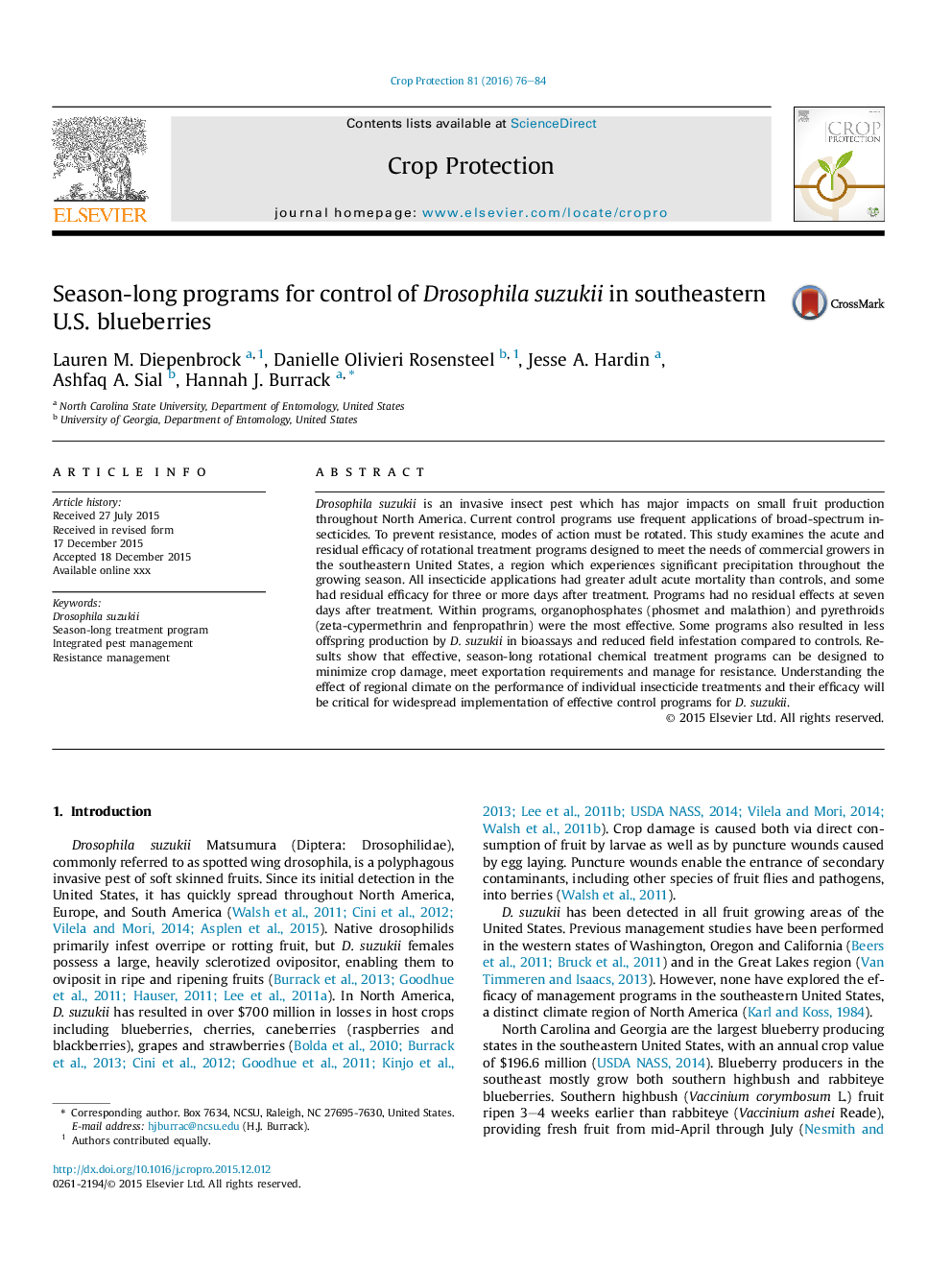| Article ID | Journal | Published Year | Pages | File Type |
|---|---|---|---|---|
| 6373266 | Crop Protection | 2016 | 9 Pages |
Abstract
Drosophila suzukii is an invasive insect pest which has major impacts on small fruit production throughout North America. Current control programs use frequent applications of broad-spectrum insecticides. To prevent resistance, modes of action must be rotated. This study examines the acute and residual efficacy of rotational treatment programs designed to meet the needs of commercial growers in the southeastern United States, a region which experiences significant precipitation throughout the growing season. All insecticide applications had greater adult acute mortality than controls, and some had residual efficacy for three or more days after treatment. Programs had no residual effects at seven days after treatment. Within programs, organophosphates (phosmet and malathion) and pyrethroids (zeta-cypermethrin and fenpropathrin) were the most effective. Some programs also resulted in less offspring production by D. suzukii in bioassays and reduced field infestation compared to controls. Results show that effective, season-long rotational chemical treatment programs can be designed to minimize crop damage, meet exportation requirements and manage for resistance. Understanding the effect of regional climate on the performance of individual insecticide treatments and their efficacy will be critical for widespread implementation of effective control programs for D. suzukii.
Related Topics
Life Sciences
Agricultural and Biological Sciences
Agronomy and Crop Science
Authors
Lauren M. Diepenbrock, Danielle Olivieri Rosensteel, Jesse A. Hardin, Ashfaq A. Sial, Hannah J. Burrack,
